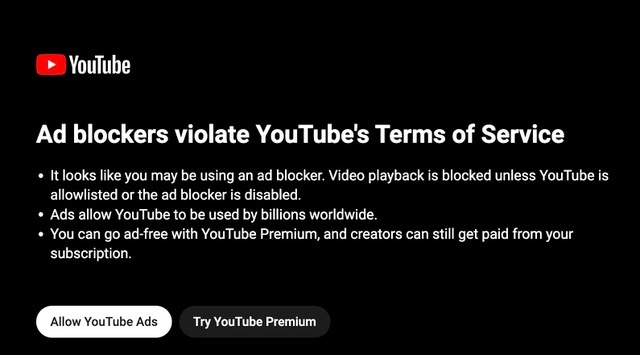this post was submitted on 10 Oct 2023
1830 points (94.0% liked)
Technology
59739 readers
3865 users here now
This is a most excellent place for technology news and articles.
Our Rules
- Follow the lemmy.world rules.
- Only tech related content.
- Be excellent to each another!
- Mod approved content bots can post up to 10 articles per day.
- Threads asking for personal tech support may be deleted.
- Politics threads may be removed.
- No memes allowed as posts, OK to post as comments.
- Only approved bots from the list below, to ask if your bot can be added please contact us.
- Check for duplicates before posting, duplicates may be removed
Approved Bots
founded 2 years ago
MODERATORS
you are viewing a single comment's thread
view the rest of the comments
view the rest of the comments

I would say that ads like YT's are the kind that pushed adblockers into being popular. Well, that and redundant/audio/popups ads that are annoying. Sometimes I turn off the adblocker and generally it's an immediate mistake.
I know it wouldn't be a large portion of content (though having control over the final look could widen the appeal), but I think Google could've gotten vector content supported in HTML5 spec (in collaboration with software, and maybe some kind of automated conversion to hybrid video) and thus supported on YT. It can be significantly less data for high-fidelity visuals, and unlike rendered video it's the same data for 720p as it'd be for someone with a 16K monitor or whatever in 20+ years from now.
Actually reducing costs in this manner would probably be too generous to competitors, just as Flash being killed off was good for YT. AV1 does help, but is still likely a big resource cost to store/serve at 4K+ (or just in general) not to mention re-encoding hardware and knowledge needed.
Kinda just like how WEBGL tech didn't actually include a container format (the reason why so much Flash content was easily archived by normal people) as it does not benefit content hosts to allow downloads (even if it'd lower cost of repeat viewings particularly by users who don't actually provide the host with revenue).